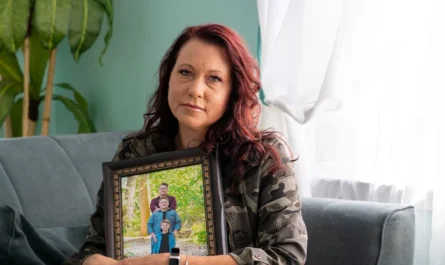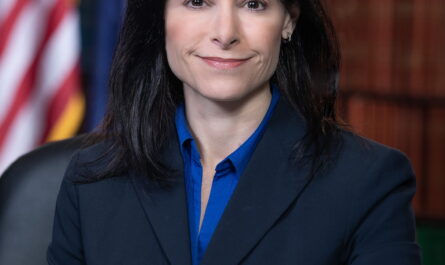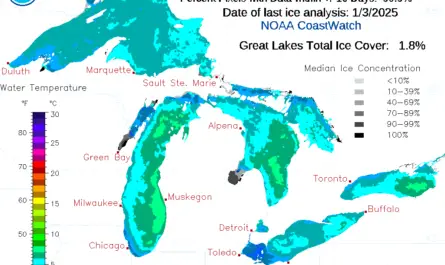Michigan joins lawsuit defense of NPR and PBS amid federal public media funding cuts executive order, citing critical access issues in rural and tribal communities.
State Attorneys General Push Back Against Executive Order Targeting Public Media

LANSING — Michigan Attorney General Dana Nessel has joined a 23-state coalition supporting lawsuits filed by National Public Radio (NPR) and the Public Broadcasting Service (PBS) to block a sweeping defunding directive issued by the Trump administration. The legal filings, led by several Democratic attorneys general, argue that the executive order signed on May 1 poses a constitutional threat to free press protections and risks undermining public safety and education across underserved regions.
The contested Executive Order 14290, signed by President Donald Trump, instructs the Corporation for Public Broadcasting and all relevant federal agencies to end funding to NPR, PBS, and their affiliates by the end of the fiscal year. The administration has cited alleged political bias and fiscal waste as justifications, though it has not produced evidence of widespread misuse.
Two lawsuits—one by NPR and a coalition of Colorado public radio stations, and another by PBS and a Minnesota affiliate—were filed in federal court in late May. Nessel and her counterparts have filed an amicus brief backing the lawsuits, calling the move a politically motivated overreach that would disrupt emergency communications and educational programming for millions.
Michigan Stations Face Major Cuts To Public Media Funding, Threatening Rural Access to News and Alerts
The funding rollback would hit Michigan’s public broadcasters hard. Michigan Public, the state’s largest NPR affiliate, covering more than 30 counties, stands to lose $560,000, or 6 percent of its annual budget, according to state estimates. The financial blow could cripple its ability to maintain partnerships, local news coverage, and emergency response broadcasts—especially in rural regions where public radio is the only reliable source of information.
“Public media is a vital source of independent information for countless Michiganders and Americans, especially in rural communities, where it is often the only option available,” said Attorney General Nessel in a press release issued June 23. “Attempts to defund public journalism are a blatant attack on the press and the First Amendment.”
Michigan is served by at least 12 public media stations, many of which support rural counties and tribal communities. The AG’s office emphasized that these broadcasters are not only providers of news but essential conduits for emergency weather alerts, school closings, and civic programming, particularly during natural disasters.
Legal Basis Centers on First Amendment and Separation of Powers
The lawsuits by NPR and PBS argue that Executive Order 14290 violates the First Amendment and the separation of powers clause of the U.S. Constitution by bypassing Congressional appropriation authority. The Corporation for Public Broadcasting, established by Congress in 1967, receives funding directly from federal appropriations and is designed to remain politically independent.
The coalition of attorneys general—including those from Wisconsin, Minnesota, New York, Oregon, and California—argues that the president cannot unilaterally defund an entity that Congress has explicitly chosen to support.
“Public broadcasting serves a crucial role in ensuring an informed citizenry,” said Minnesota AG Keith Ellison, who co-led the amicus effort. “The executive branch has no authority to cancel that role simply because it dislikes the reporting.”
Broad Support Emerges for Public Media’s Nonpartisan Mission
The funding challenge comes as public trust in media continues to splinter along partisan lines. However, public media outlets consistently rank among the most trusted news organizations, according to polling by Pew Research Center and Gallup. Their educational programming, early childhood content, and coverage of local government are often highlighted as nonpolitical, high-value services.
Local stations like WKAR in East Lansing, WDET in Detroit, and Interlochen Public Radio also provide arts coverage, music, and culturally significant programming unique to Michigan.
AG Nessel and her co-filers are not requesting financial relief but seek an immediate injunction and a judicial review of the constitutionality of the executive order. The case could take months to resolve but is widely expected to trigger a broader legal debate over federal authority to unilaterally defund institutions with Congressionally appropriated budgets.
Read More Interesting Feature Stories From ThumbWind
- Michigan Feature News Stories – Unveiling the diverse and vibrant people, captivating places, and remarkable events that come together to make the Great Lake State unique.
- Strange Political News – A sarcastic take on official news from around the U.S., exploring the absurdities that often arise in the political landscape while providing a humorous perspective on current events and highlighting the quirks of politicians and policies.
- Michigan Hometown News – News and events from Michigan’s Upper Thumb region worth knowing, including local stories, impactful interviews, and updates on community happenings that shape the culture and lifestyle of the area.
Your Turn – Like This, or Hate it – We Want To Hear From You
Please offer an insightful and thoughtful comment. We review each response. Follow us to have other feature stories fill up your email box, or check us out at ThumbWind News




